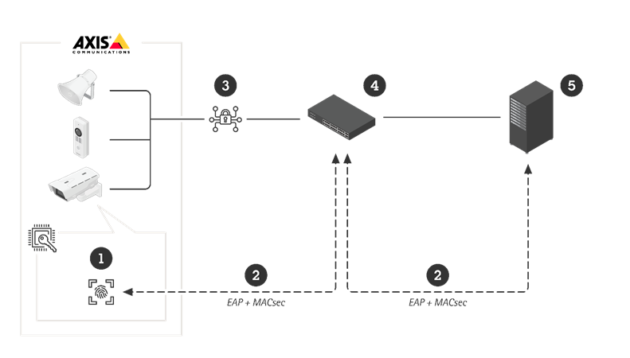The Monitoring Association (TMA) Standards Committee has received confirmation that its TMA-AVS-01 Alarm Validation Standard has received official ANSI accreditation. Initiated in 2020, the standard provides a method of creating an alarm scoring or classification metric for unauthorized human activity detected by alarm systems. The alarm scoring will assist law enforcement with resource allocation and Call-for-Service prioritization. The standard is available for download at http://tma.us/standards/tma-avs-01-alarm-validation-standard/.
“I am extremely proud of the Committee’s work to bring this game-changing standard to completion. My sincere thanks to those in the security industry and the public safety community who participated in this collaboration,” TMA-AVS-01 Committee Chair Mark McCall commented. “Now begins the equally important work of implementing this standard into both communities, bringing significant benefits to both and to our mutual customers.”
The TMA-AVS-01 Standard Committee was composed of more than 60 participants, representing diverse stakeholders, such as professionals from the security industry, law enforcement, and public safety.
TMA’s President Morgan Hertel observed the significant impact of the new standard on the security industry. “It’s been almost four years since its inception, which includes two years of actual work on this standard. We have finally reached the point where it’s ready to launch. This is the biggest change in the intrusion industry since the release of the digital dialer.”
TMA-AVS-01 establishes standardized methods for calculating an alarm score, or classification level, that results in a repeatable metric that estimates the validity or potential threat level of an intrusion alarm activation using historical and real-time data.
Once completed and implemented, Call-for-Service to Emergency Communication Centers (ECCs)/Public Safety Answering Points (PSAPs) will include a standardized scoring metric that will assist public safety departments with their alarm response policies.
The standard identified four alarm Levels:
- Alarm Level 0 – No Call for Service
- Alarm Level 1 – Call for Service with limited to no additional information
- Alarm Level 2 – Call for Service with confirmed or ‘highly probable’ human presence with unknown intent
- Alarm Level 3 – Call for Service with confirmed threat to property
- Alarm Level 4 – Call for Service with confirmed threat to life
David Holl, director of Public Safety, Lower Allen Township Department of Public Safety (PA), and one of the TMA-AVS-01 Committee co-chairs, remarked “ECCs/PSAPs are the leading-edge in processing citizen calls for service and communicating active alarm event data to law enforcement responders. TMA-AVS-01 will shift the paradigm and provide enhanced strategic information to greatly improve officer response logistics, officer safety, and impact more efficient and effective alarm call management. The development and evolution of this scoring standard has been an impressive collaborative effort of the alarm industry community and public safety professionals. It will change the way we all manage and respond to alarm events.”
“AVS-01 changes everything. The security industry now has a unified method for security alarm reporting, as well as a new level of partnership with public safety. This standard was only possible with the exchange of ideas, experiences, sometimes robust dialogue, and commitment of public safety and the security alarm industry. I am so very proud of this standard and cannot wait to see the results for our communities and customers. Specifically, a priority response can now be requested based on corroborating information. AVS-01 provides better information to public safety helping them prioritize their resources and save lives,” stated TMA-AVS-01 Committee Co-Chair Larry Folsom.
TMA is in the process of developing targeted online training for monitoring center personnel, law enforcement, and ECC/PSAP staff. Additionally, discussions with monitoring center software and automation providers have been initiated to provide for necessary updates in line with the standard’s validation and scoring classification.
If you have any questions or comments, please contact Bryan Ginn at bginn@tma.us.




 TMA President Morgan Hertel recognized the outstanding contributions of UL Solution’s Steve Schmit on Nov. 1st at TMA’s 2022 Annual Meeting in Marco Island, FL. A plaque and gift were presented to Schmit during the AM session.
TMA President Morgan Hertel recognized the outstanding contributions of UL Solution’s Steve Schmit on Nov. 1st at TMA’s 2022 Annual Meeting in Marco Island, FL. A plaque and gift were presented to Schmit during the AM session.





